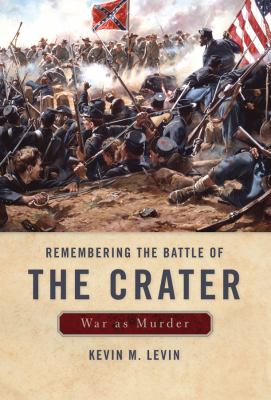
Book
|
Remembering the Battle of the Crater : war as murder
Copies
6 Total copies, 6 Copies are in,
0 Copies are out.
Title
Remembering the Battle of the Crater : war as murder
Call No
E476.93
Authors
Subjects
Language
English
Published
Lexington, Kentucky : The University Press of Kentucky, 2012.
Publication Desc
184 p. : ill., maps ;
ISBN
9780813136103
(hardcover : alk. paper)
LCCN
2012012438
Target Audience
Unknown or not specified
Dimensions
24 cm.









